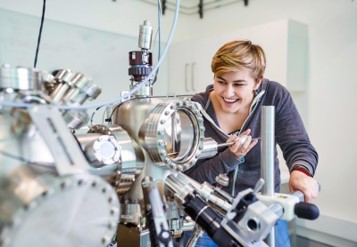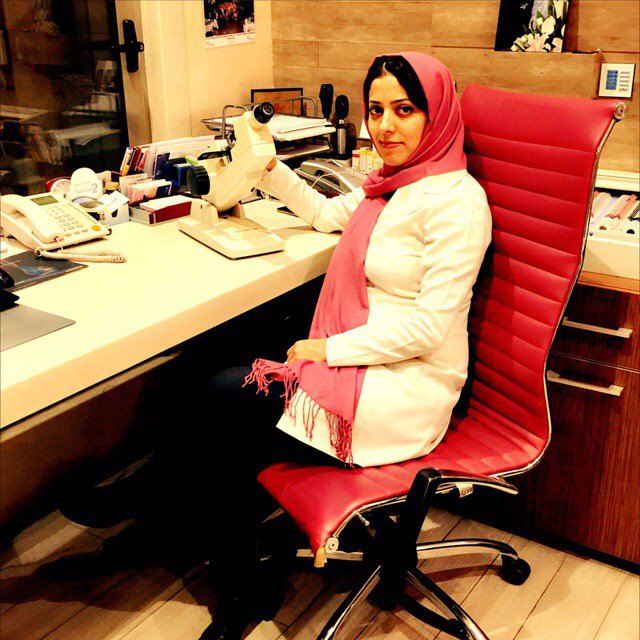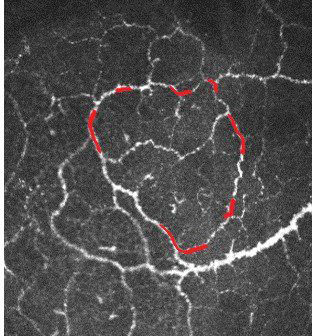By Nicole Richardson
From the 21-25th January 2020, UNSW Science will be hosting SciX – an outreach program which allows Year 12 NSW students to come and learn about research from one of sixteen amazing PhD student mentors. Almost 100 eager students looking to study Science Extension in their HSC will have the chance to experience science at a research level, using cutting-edge techniques to investigate their own scientific hypotheses in a wide variety of fields including quantum computing, astrobiology, cognitive science and aeronautical engineering. Here is a day in the life of two of our 2020 SciX mentors.
Georgina Carson
3rd year PhD student in quantum computing
6am – Wake up, stretch, meditate. Head to the gym or out for a run or walk around Centennial Park. Exercise and mindfulness are important to keep my mental health in check. If I have time, I’ll sit and read a chapter of my book over a large cup of tea. Get ready for work, say goodbye to my partner and walk to campus.
8am – Sit at my desk and work out what I need to do today. This can range from lab work, to writing up my results, to reading academic papers. I also quickly go through my emails and get any admin stuff out of the way.
 9am – Time for some lab work! I spent last week in the scanning tunnelling microscope (STM) lab fabricating a quantum device. Today I need to do some post-processing of this device using the nanofabrication equipment in our cleanroom lab. This involves getting dressed in a full-body suit, complete with face mask and gloves – we can’t let any dust into the clean room. I spend a few hours working in the lab, chatting to a few of my colleagues working on their own things.
9am – Time for some lab work! I spent last week in the scanning tunnelling microscope (STM) lab fabricating a quantum device. Today I need to do some post-processing of this device using the nanofabrication equipment in our cleanroom lab. This involves getting dressed in a full-body suit, complete with face mask and gloves – we can’t let any dust into the clean room. I spend a few hours working in the lab, chatting to a few of my colleagues working on their own things.
12:30pm – Lunch with some of the other PhD students in my group. There are 12 of us, so someone is always around to grab lunch with me.
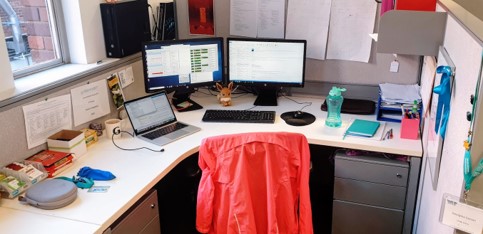 1:30pm – Back to my desk to do some writing. Headphones on with some good music to keep me focused. I’m writing up the results from the measurements I took over the last few weeks. I’m not a big fan of writing, but I know if I do it now I’ll have less to do later when writing my thesis! Putting everything down on paper also helps me understand my results better, and work out what needs to be done next. If I start getting distracted or losing motivation, I’ll get up and go for a 10 minute walk to grab a coffee and get some fresh air.
1:30pm – Back to my desk to do some writing. Headphones on with some good music to keep me focused. I’m writing up the results from the measurements I took over the last few weeks. I’m not a big fan of writing, but I know if I do it now I’ll have less to do later when writing my thesis! Putting everything down on paper also helps me understand my results better, and work out what needs to be done next. If I start getting distracted or losing motivation, I’ll get up and go for a 10 minute walk to grab a coffee and get some fresh air.
5pm – Finish up for the day. Tidy my desk, which is usually covered in scraps of paper by now. Head home and make dinner (usually leftovers on a weeknight). Some evenings I have footy training (AFL, my favourite sport), so I’ll get home around 8pm and eat then. Otherwise I relax with a book or in front of the TV with my partner, or do any marking I need to do.
9:30pm – I like to go to bed reasonably early, and be asleep by 10pm.
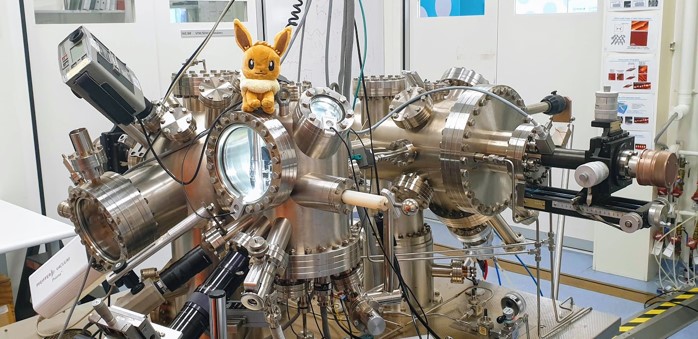
Follow Georgina on Twitter
Sylvia Ganda
3rd year PhD student in chemistry
 7am – Get up and start getting ready for work. I usually start by aligning myself with the three most important things that need to get done that day. I also have a good nutritious breakfast to make sure I start the day right!
7am – Get up and start getting ready for work. I usually start by aligning myself with the three most important things that need to get done that day. I also have a good nutritious breakfast to make sure I start the day right!
8.20am – Start walking to campus as I live within walking distance. Once I get there, I swing by my favourite coffee shop to get my much needed coffee and engage in a good, light-hearted conversation with the barista.
9am – Head to my desk. While getting caffeinated, I scroll through relevant scientific journals in my research field to check out recently published articles. It’s important to stay up to date with the latest science.
10am – Go through my calendar and create a to-do-list for the day. I also plan and revise the experiments I need to do during the day.
 11am – Now we begin to have some fun in the lab! This generally includes setting up reactions, proceed with the ones that need working up or do some microscopy imaging. Some days I have meetings with my thesis supervisor and discuss how my projects are going.
11am – Now we begin to have some fun in the lab! This generally includes setting up reactions, proceed with the ones that need working up or do some microscopy imaging. Some days I have meetings with my thesis supervisor and discuss how my projects are going.
12pm – Lunch time! I generally grab a quick bite by myself, but sometimes I go to lunch with my fellow PhD friends and catch up with them.
12.45 – Time for some quick tea or refuel with some coffee!
1.15pm – Get back to the lab and do some more experiments.
2.30-3pm – I usually use this pocket of time to answer emails and do admin things for the lab.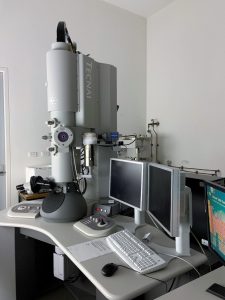
3pm –. Hooray, gym time! This is my favourite time of day where I take care of myself, shut off from the world and focus on my training. I don’t think about work or answer emails during this period. I find that by breaking up my day with something like this really increases my productivity whilst preserving my health.
4.15pm – Come back from the gym all refreshed and ready to take on more challenges!
4.30-7pm – Data analysis, read some articles and do some more planning for the next day.
7.30 pm – Get ready to head home for the day. Yay! The walk home is usually refreshing as I just let my mind wander about. Sometimes I grab a bite with the other lab members (which often ends in much food and laughter) or I cook for myself in my kitchen with Jazz music playing in the background.
9pm-11pm – Call my parents and chat about the day. This is another highlight of my day as my mum is hilarious! After that I read some books or watch something on Netflix, and then get ready for bed.
Are you a NSW Year 12 students looking to studying Science Extension in their HSC and interested in SciX?
Apply for the program here.
And follow Laura McKemmish and Shannan Maisey of the SciX executive team on Twitter

